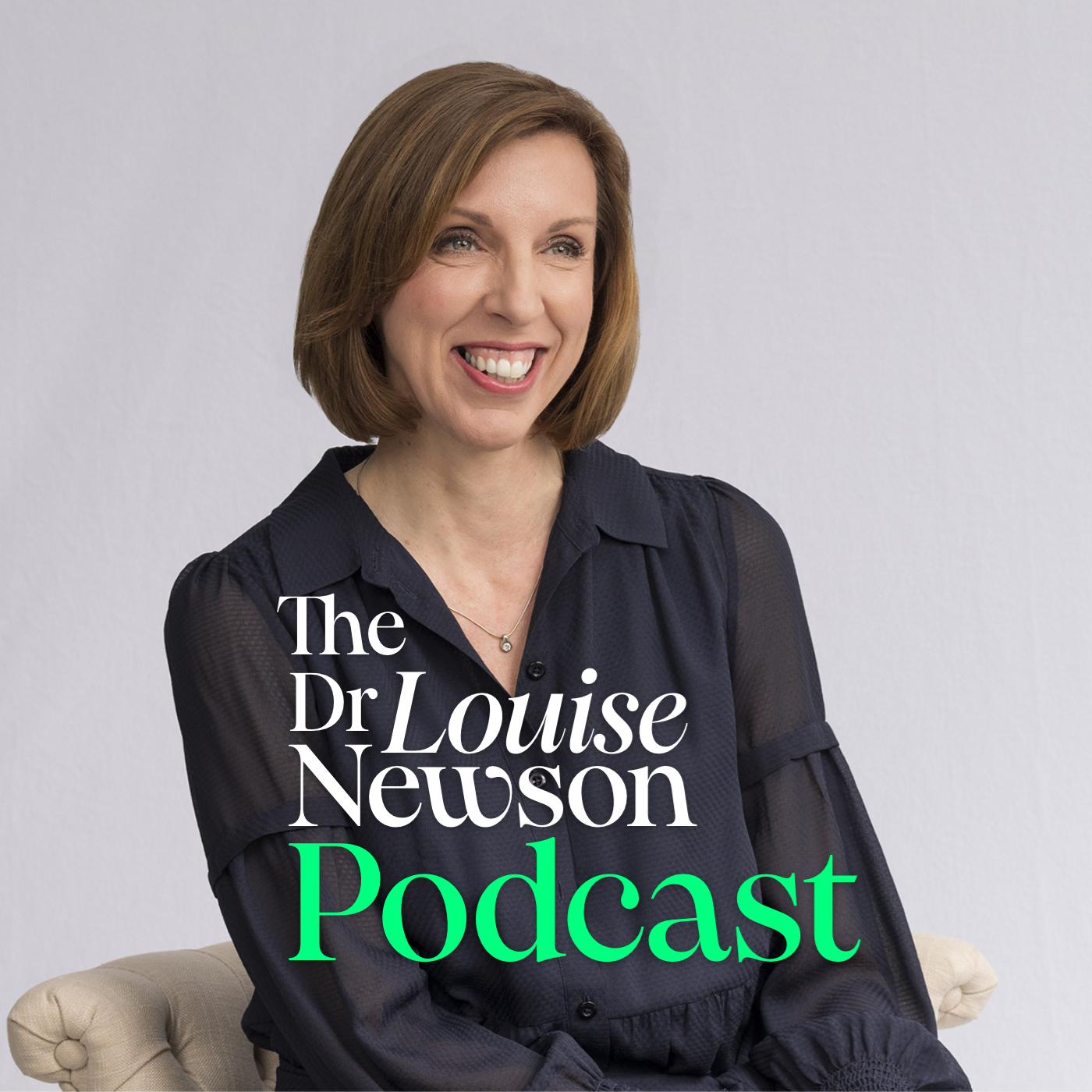
8.5M
Downloads
311
Episodes
Dr Louise Newson is an award-winning physician, respected women’s hormone specialist, educator, and author committed to increasing awareness and knowledge of perimenopause, menopause, and lifelong hormone health. Each week, Louise dives into the newest research, treatments and hot topic issues, providing accessible, evidence-based information to empower your future health. Joined by fellow experts and special guests, with answers to your burning questions, Louise explores how hormones impact every aspect of our lives. Described as the “medic who kickstarted the menopause revolution”, Louise aims to empower a generation of women to have a greater understanding, choice and control over their treatment, bodies, minds and future health through their hormones. She is the creator of the award-winning free balance app, a Sunday Times bestselling author and the founder of the Newson Health clinic. With over three decades of clinical experience, Louise is a member of the Royal College of Physicians, a Fellow of the Royal College of GPs, a Visiting Fellow at Cambridge, a regular contributor to academic journals including the Lancet and the British Journal of General Practice, and has been awarded an honorary Doctorate of Health from Bradford University. DISCLAIMER: The information provided in this podcast is for informational purposes only and is not intended as a substitute for professional medical advice, diagnosis, or treatment. Always seek the advice of your physician or other qualified health providers with any questions you may have regarding a medical condition. The views expressed by guests are their own and do not necessarily reflect the views of Dr Louise Newson or the Newson Health Group.
Episodes

Tuesday Dec 28, 2021
Tuesday Dec 28, 2021
Pharmacist, Jonathan Underhill is a consultant clinical advisor for the Medicines Optimisations team at the National Institute for Health and Care Excellence (NICE). His work is focussed on evidence-based medicine but, as he explains, this is more than simply telling people what to do. One of the particular focuses of Jonathan’s work is the process known as ‘shared decision making’ between the clinician and the patient and he’s interested in how you involve a person in choices and decisions about their own healthcare.
Jonathan outlines some of the reasons NICE was originally set up – to reduce uncertainty and variation in prescribing – and with Louise, he evaluates whether this has been the outcome 6 years down the line, after the release of the NICE guidelines on menopause diagnosis and management.
Jonathan’s tips for shared decision making as a patient:
- It’s OK to ask questions.
- If you need it, take someone with you that you trust who can listen and advocate for you
And for healthcare professionals:
- David Haslam’s (former Chair of NICE) consultation skills advice for doctors were basically ‘shut up and listen, show empathy, and know something’. If you can do these 4 things well it will make a big difference
- Practice your conversation skills as a clinician. You can learn to communicate better with your patients.
The NICE guidelines on menopause can be read in full here and more about shared decision making can be found here.
If you are a healthcare professional, the following link offers 4 hours of free online learning in shared decision making from NICE and Keele University:
https://www.nice.org.uk/guidance/ng197/resources/shared-decision-making-learning-package-9142488109
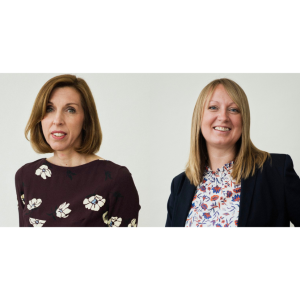
Tuesday Dec 21, 2021
131 - Joining the dots through research and education with Lucy Chatwin
Tuesday Dec 21, 2021
Tuesday Dec 21, 2021
In this episode, Dr Louise Newson is joined by Lucy Chatwin, who is responsible for the not-for-profit organisation, Newson Health Research and Education. Lucy has had a portfolio career that has taken her through environmental science and operations, through human resources and management into health, in particular service improvement and transformation roles in the NHS. Her last role in the West Midlands Academic Health Science Network focussed on supporting the adoption of innovation into health services to improve health outcomes for people. Lucy is perfectly placed to bring together the often diverse worlds of industry, academia, and clinical organisations to drive improvements that will make a real difference to the lives of people in the perimenopause and menopause and those around them.
Lucy discusses the range of opportunities for innovation in menopause research, education and management and encourages those working in health and academia to ‘think hormones’ as an integral part of their practice. A key catalyst for this is the soon-to-be launched Newson Health Menopause Society that Lucy is leading on. The society will provide a global arena for integrating and energising research, driving education and upskilling professionals working in the field of menopause care.
Lucy’s tip for women is make time for yourself to unpick what is going on if you think you may be perimenopausal, don’t just assume it’s down to other things. Download the balance app at www.balance-menopause.com to help understand your hormones, the impact they’re having on you and how to get help for your symptoms.
Lucy’s tips for healthcare professionals:
- Connect with other interested experts outside of your specialty, this is often the best way to expand your thinking
- Make your mantra, ‘could it be hormones?’ If you treat women, don’t underestimate the influence of changing hormones in so many health conditions and presentations.
Register your interest in joining the Newson Health Menopause Society at www.nhmenopausesociety.org and follow them on Twitter at @NHMenoSociety or LinkedIn at Newson Health Menopause Society.
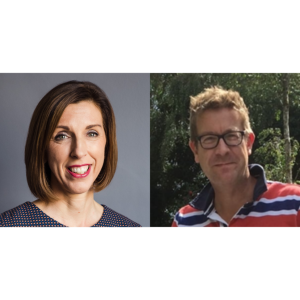
Tuesday Dec 14, 2021
Tuesday Dec 14, 2021
Dr Richard Hull teaches philosophy at the National University of Ireland, Galway. Due to a coming together of work life and home life in lockdown and his wife’s experience, Richard began thinking and writing about the menopause from an ethical and philosophical perspective. As an issue under our noses all the time, he was astounded that more isn’t written about it, and he queries the lack of ethical concern for women regarding this time of life and the impact on those around them.
Richard discusses with Dr Louise Newson the importance of raising awareness of perimenopause and menopause, sharing accurate information, training healthcare professionals and empowering women with the right knowledge to recognise what is happening to them and to get the help they need through treatment.
Richard’s 3 hopes for change:
- Personal and public awareness of the impact of the menopause is crucial
- For everyone to have the confidence to seek support in all its forms and find out about HRT
- Talk more and spread awareness and knowledge with others. The more people are aware, the less it can be ignored.
You can read Richard’s article on the menopause here. Richard’s wife, Jaany, has written about her experience here.
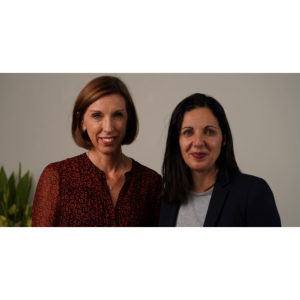
Tuesday Dec 07, 2021
129 - Taking a mid-life career leap to help menopausal women with Gaele Lalahy
Tuesday Dec 07, 2021
Tuesday Dec 07, 2021
Gaele Lalahy had a successful career in consumer electronics as Board Member and Head of Brand Communications & Olympic marketing at Panasonic. Having been with the same company for two decades, Gaele became fearful of not having tried a different career, so she decided to take the leap and leave her job without a plan in place. When the opportunity came up to run Dr Louise Newson’s balance menopause support app, it didn’t immediately grab Gaele’s interest because, as she admits, she knew nothing about the menopause or the scale of the problem facing women.
After doing her own research and realising hundreds of thousands of women were suffering and struggling to get treatment, Gaele came on board as the Chief Operating Officer for balance at the start of 2021. Since then, the app has grown ten-fold and is really helping to change the narrative around perimenopause and menopause and empower women with the information they need to get help from their local GP practices. Gaele shares some of the remarkable statistics that show how the app helps women get a diagnosis and treatment more efficiently, and she discusses plans for the app’s future that will make even more of a difference to people’s lives.
Gaele’s 3 reasons to use the balance app:
- The balance app is a safe space to share and get support from like-minded people who also going through the peri/menopause.
- All the information on the app is very easy to digest, all medically approved and based on the latest evidence.
- Come to the app to figure out what is going on with your body and mind and join the dots. You will learn more about the many changes you may be experiencing and can then use this insight in discussions with your doctor to get a diagnosis and treatment.
Find out more information about the balance app on the balance-menopause.com website here.
Read about balance for healthcare professionals (HPs) or share with your HP on their website here.
Look out for balance+ coming in early 2022!
You can follow the balance app on their social platforms at:
Facebook @balanceMenopause
Instagram @balancemenopause
Twitter @balanceMeno
LinkedIn @balance-app

Tuesday Nov 30, 2021
Tuesday Nov 30, 2021
In this episode, Dr Louise Newson is joined by a long-time friend, retired consultant urologist, Steve Payne. Together they discuss Steve and his wife Jan’s experience of her breast cancer and subsequent treatment that led to estrogen depletion. Steve describes the decision-making process they went through as a couple when Jan’s quality of life deteriorated due to severe urine and kidney infections, as well as other symptoms relating to a lack of estrogen.
The experts talk about how some people’s experience in cancer care clinics can fall short of patients and their partners being given full and balanced information into how cancer treatments will affect your hormones and what this potentially means for your quality of life. Steve shares his honest reflections and insights about cancer care clinics and offers invaluable advice for those navigating these complex and confusing decisions at such a difficult time.
Steve’s advice for making decisions about cancer treatments:
- Ask what the benefits, and especially the downsides, of the treatment are. It is key that you understand all the pros and cons of a treatment being recommended to you.
- If it’s treatment for cancer, ask about the pure cancer survival rates – once deaths from other causes have been removed from the data – to make sure you know the actual level of survival benefit that the suggested treatment offers.
- If you’re having side effects from breast cancer treatment due to a lack of estrogen, have a discussion about the pros and cons of taking HRT, for your particular type of cancer. Ask how taking HRT could improve your daily life and wellbeing and what benefits HRT offers for bone and heart health in the future. Ask how would taking HRT affect your pure cancer survival rate.
Steve has written more about his and Jan’s experience and offers practical advice here, along with a new factsheet about making informed decisions during cancer care.

Tuesday Nov 23, 2021
127 - Introducing Alistair Darby, CEO of Newson Health
Tuesday Nov 23, 2021
Tuesday Nov 23, 2021
In this episode, Dr Louise Newson explains about an exciting new appointment for Newson Health and introduces Alistair Darby as the new CEO. Coming from a hospitality background, Alistair explains what led him to apply for the role of CEO of a menopause healthcare company, and he shares how his awareness of menopause increased after he witnessed the devastating impact on his wife 5 years ago.
Alastair and Louise discuss the problem of the menopause in the workplace and the resulting gap of female talent at the top. They talk through their joint mission to normalise getting treatment for the perimenopause and menopause and speculate on what a difference this would make to relationships, the workplace, healthcare and society.
Through his role, Alistair hopes to:
- Get men to wake up and smell the (menopause infused) coffee! This is a huge gender inequality issue.
- Work together to scale up what we do and give more women access to treatment and HRT than is currently the case. This will have a transformative effect on many more lives.
- Help women to feel fitter, and more energetic as they grow older, so they can continue to make an amazing contribution – for them, their families, society and the economy.

Tuesday Nov 16, 2021
Tuesday Nov 16, 2021
Professor Isaac Manyonda is back by popular demand to discuss perhaps the most important issue for women considering and taking HRT; what is the risk of breast cancer if I take HRT? Professor Manyonda expertly takes the listeners through the different issues, one by one, including comparing the level of risks of breast cancer from HRT with lifestyle factors such as weight and alcohol intake. He outlines the risks according to different types of estrogen and progesterone, and explains the difference between estrogen receptor positive and negative breast cancers.
This episode is a must-listen for anyone who wants to be able understand – and clearly explain to others – the evidence-based picture around breast cancer and HRT, for both healthcare professionals and anyone interested in the topic.
Prof. Manyonda’s 3 take-home messages:
- The strong evidence shows that estrogen does not increase the risk of breast cancer and it could even have a protective effect.
- If you take estrogen and develop breast cancer you have a lower risk of dying from the cancer than women not taking estrogen.
- The benefits of HRT extend way beyond the improvement of your symptoms and include protection of the cardiovascular system, your bone health, your immune system, and potentially prevention of dementia.

Tuesday Nov 09, 2021
Tuesday Nov 09, 2021
Menopause specialist, Dr Sarah Ball, makes a record 4th appearance on the Dr Louise Newson podcast this week, to talk about an important group of women that often feel marginalised when it comes to menopause care and treatment. One in seven women will experience breast cancer, and many more of us have a close relative who has had breast cancer. Thankfully, thousands more women are living longer after breast cancer, but this often means living with the menopause and symptoms of a lack of hormones.
The experts discuss the risk factors of developing breast cancer and the complexities of the association between hormones and breast cancer. Dr Sarah Ball has researched the experiences of menopausal women having breast cancer treatment and her findings reveal women are having to endure menopausal symptoms for an average of 7 years before seeking, or being given, help and treatment, and sadly, only 10% of the women surveyed felt they were involved in decisions about their care.
Dr Ball and Dr Newson are both passionate about helping women after breast cancer and believe it is essential that these women are listened to, that healthcare professionals discuss in full the treatment options for their menopausal symptoms, and that women feel empowered to make a decision that’s right for them, at that time, being aware of all the relevant information.
Sarah’s 3 tips for women after breast cancer:
- Don’t feel guilty for how you feel about your menopause, you’re not complaining, or moaning or being ‘weak’. It’s really important that your symptoms are addressed. You are your whole body, not just your breasts. Don’t lose sight of the health of your heart, your bones, your skin, your sex life, your mental health and brainpower – these are important too.
- Symptoms relating to your vagina, vulva and urinary function are treatable by using vaginal estrogen. This is safe to use after breast cancer and is not absorbed by the whole body in the same way as HRT. You can tackle these symptoms successfully, even if you feel you do not want to take HRT.
- Understand you do have a choice. Guidelines recommend you should be listened to and have a say in decisions about treatments. Tell your healthcare professionals what is most important to you in terms of living your life, treating your menopausal symptoms, and managing the risk of cancer returning.
Follow Dr Sarah Ball on Instagram @drsarahmollyball and Twitter @sarahball14
Making decisions around your cancer treatment and menopause is often a complicated and overwhelming process. There is a new factsheet on balance website about making informed decisions about cancer treatments here, and a personal story written by the partner of a woman having worsening menopause symptoms after breast cancer treatment here.

Tuesday Nov 02, 2021
Tuesday Nov 02, 2021
Dr Nneka Nwokolo and Dr Martina Toby are both consultant physicians in sexual health and HIV medicine, and together they have joined forces to help educate and advocate for women of colour experiencing perimenopause and menopause.
In this episode, the experts share what prompted them to set up the ‘Shades of Menopause’ Instagram group and the benefits of using social media to support women of colour. Together with Dr Louise Newson, they discuss some of the socioeconomic and cultural factors, as well as gender inequalities that affect a woman’s experience of healthcare, and the unfortunate lack of research around use of HRT in women of colour.
Nneka and Martina’s three tips to women of colour:
- Do your own research and ask other women about their experience
- See your GP for help. Ask who is the best person to see at your practice. Go equipped with knowledge already, and you will get a much better outcome.
- You are not alone, millions of women like you are going through it. If you feel you can’t speak up, find a friend who is willing to do it for you. Your voice matters and needs to be heard.
Follow the podcast guests on Instagram @shadesofmenopause
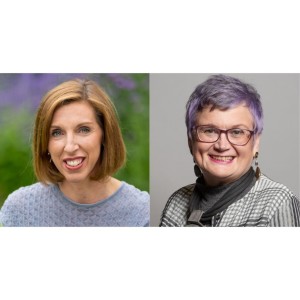
Tuesday Oct 26, 2021
123 - The Menopause Revolution with Carolyn Harris MP
Tuesday Oct 26, 2021
Tuesday Oct 26, 2021
Carolyn Harris MP left school at 16, had two children at a young age and worked as a barmaid. Her young son, Martin, was tragically killed in a road accident in 1989 and this changed her life forever. She sank into a black hole for the next few years but turned things around when at 34 she became the first person in her family to go to university. Carolyn never dreamt that 20 years later she would be the MP for her community, Swansea East, and although she continues to experience imposter syndrome regularly, once she has decided to fight for change, she does not give up.
Carolyn has campaigned on topics such as child funerals and gambling. She did not realise her collection of health problems were related to the menopause at first, but when she joined the dots and learnt more about the effects of the menopause, especially in the workplace, she set up an All Party Parliamentary Group on menopause and was successful in changing the law in Wales in removing the prescription fee for HRT.
Carolyn’s advice to women:
- Be part of the menopause revolution. Find us on social media, there’s a template letter on the APPG website so you can write to your local MP, and contact my office or on Twitter if you’d like to get involved. Join us in London in Parliament Square for the Menopause Support Bill on the 29th
- Dreams can come true. Don’t think you can’t achieve something. You are brilliant and strong. You can be what you want to be, you just need to be brave.
- We are using our platforms to call for change, but you can go into your place of work, talk about your own experience, ask others about theirs, say ‘do you think this could be the menopause?’
Carolyn Harris MP details:
Website: www.carolynharris.org.uk
Twitter @carolynharris24 and @AppgMenopause
Email: carolyn.harris.mp@parliament.uk
